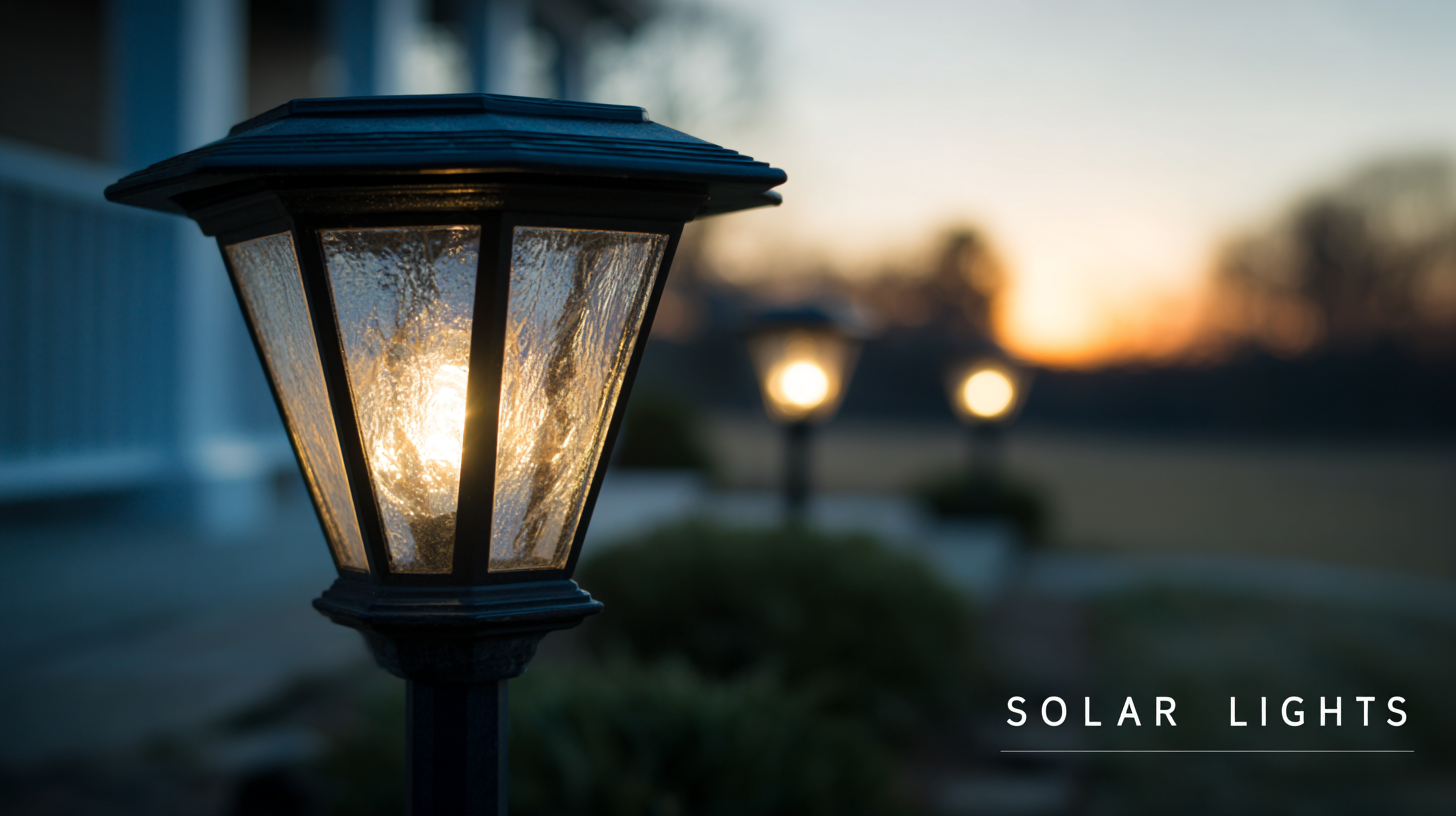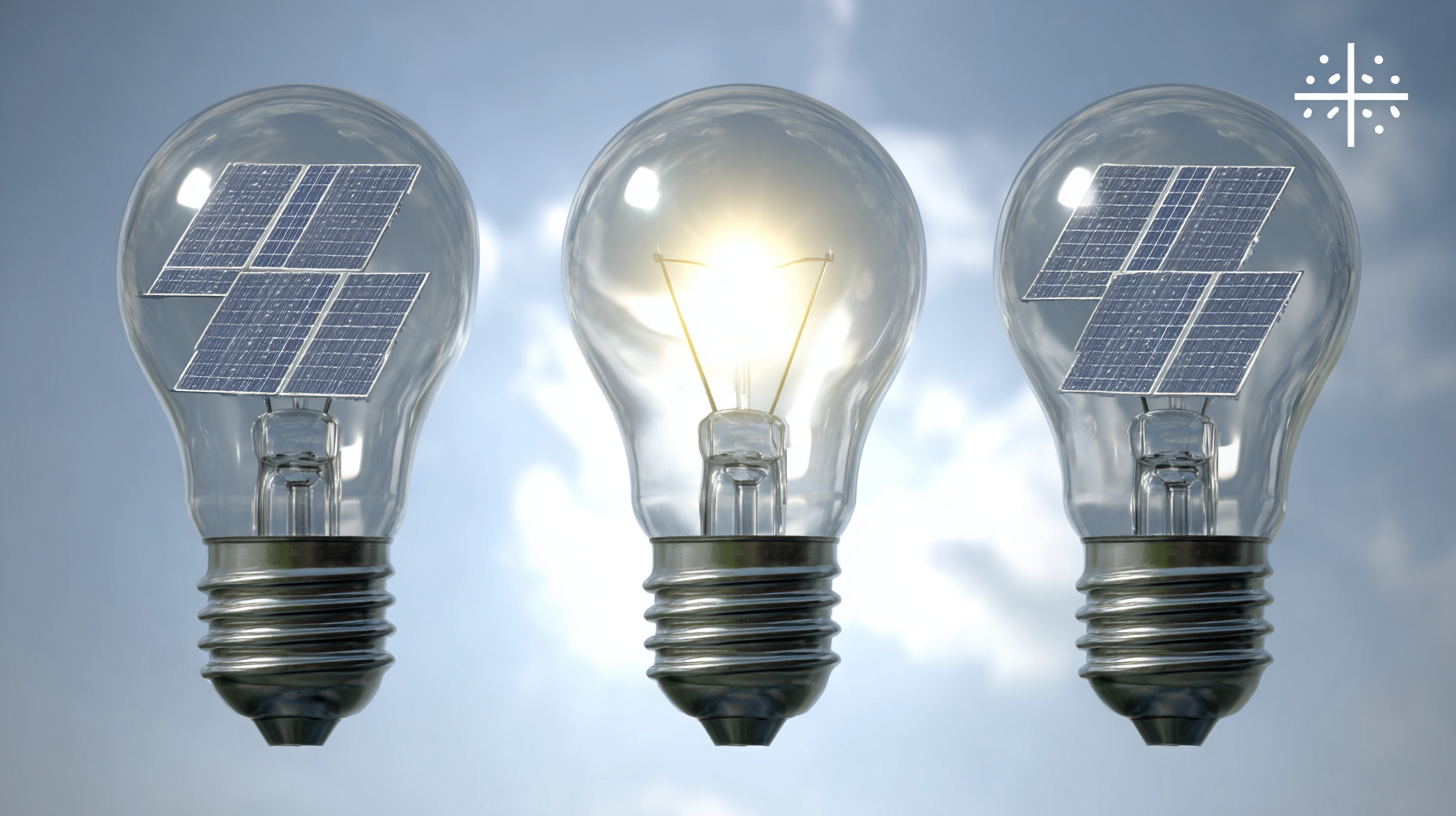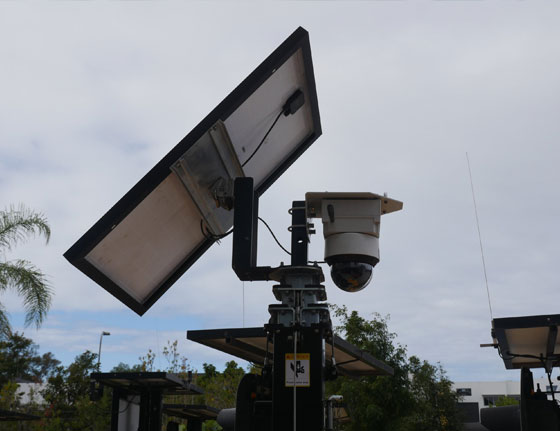Blog
Unlocking the Advantages of Best Solar Power Lights for Your Sustainability Goals
As the world increasingly shifts towards sustainable energy solutions, the adoption of Solar Power Lights emerges as a key innovation that aligns with both environmental priorities and technological advancements. The industry is poised for transformative changes by 2025, with solar lighting systems leading the charge in providing efficient, eco-friendly alternatives to traditional lighting. These systems not only harness the sun's energy to illuminate spaces but also contribute to reducing carbon footprints and enhancing energy independence. In this blog, we will delve into the myriad advantages of Solar Power Lights, exploring how they can play a pivotal role in achieving sustainability goals while offering practical benefits for both residential and commercial applications. Join us as we unlock the potential of this game-changing technology and its impact on our environment and future energy landscape.

The Rise of Solar Power: Industry Trends Leading to 2025
The rapid rise of solar power is changing the landscape of energy consumption as we approach 2025. With increasing awareness of sustainability and environmental issues, more homeowners and businesses are opting for solar energy solutions. This trend is driven by advancements in technology, which have made solar panels more efficient and affordable. Additionally, government incentives and policies aimed at promoting renewable energy are fostering greater adoption and innovation within the industry.
When considering solar power lights for your space, it’s essential to choose models that are versatile and energy-efficient. Investing in solar lights equipped with motion sensors can enhance security while reducing energy consumption. Moreover, selecting lights with adjustable brightness levels allows you to customize the ambiance and save energy during less active times. As the technology continues to evolve, anticipate even more user-friendly designs that simplify installation and maintenance, making it easier to align your lighting choices with sustainability goals.
Another trend to watch is the integration of smart technology with solar power systems. Smart solar lights that can be controlled via mobile apps not only offer convenience but also provide real-time insights into energy consumption. This feature empowers users to make informed decisions about their energy usage, fostering a more sustainable lifestyle. As we move forward, these innovations will undoubtedly play a significant role in shaping the future of solar energy and its impact on sustainability.
Key Benefits of Solar-Powered Lights for Sustainable Living
Solar-powered lights are becoming increasingly important in achieving sustainability goals, offering numerous benefits that contribute to eco-friendly living. According to a report by the International Renewable Energy Agency (IRENA), transitioning to solar energy could reduce global carbon emissions by more than 70% by 2050. By utilizing solar-powered lights, households and businesses can decrease their reliance on fossil fuel-based energy sources, effectively lowering their carbon footprint.
One of the most compelling advantages of solar-powered lights is their energy independence. With solar lights, energy is harnessed directly from the sun, making them an efficient alternative to traditional electrical lighting systems. Industry research indicates that using solar lights can cut electricity bills by up to 80%. Additionally, solar lights require minimal maintenance and have a longer lifespan, often lasting over 20 years with no need for wiring or electric connection. This not only saves on overall costs but also reduces the need for frequent replacements, further enhancing their sustainability profile. Embracing solar-powered lighting can significantly contribute to a greener, more sustainable future.
Unlocking the Advantages of Best Solar Power Lights for Your Sustainability Goals
| Feature | Description | Benefits |
|---|---|---|
| Energy Efficiency | Uses sunlight to generate electricity, reducing reliance on grid power. | Lower energy bills and environmental impact. |
| Low Maintenance | Minimal upkeep required; solar panels last for years with little intervention. | Saves time and money over the long term. |
| Environmentally Friendly | Produces clean energy without harmful emissions. | Contributes to reducing carbon footprint and combating climate change. |
| Versatility | Can be used in various settings—gardens, pathways, or decorative lighting. | Enhances outdoor aesthetics while being functional. |
| Cost-Effective | Initial investment recoups savings on energy costs over time. | Economical choice for homeowners and businesses. |
Latest Technologies in Solar Light Solutions for Eco-Friendly Spaces
 The advancement of solar light technologies has transformed the way we approach eco-friendly spaces. With the latest innovations, solar power lights are not only energy-efficient but also aesthetically pleasing, making them an ideal choice for gardens, pathways, and outdoor gatherings. Incorporating features such as motion sensors, dusk-to-dawn operation, and LED efficiency, today's solar lights can effectively illuminate spaces while significantly reducing carbon footprints. These cutting-edge designs allow users to harness solar energy efficiently, ensuring their outdoor environments remain bright and welcoming.
The advancement of solar light technologies has transformed the way we approach eco-friendly spaces. With the latest innovations, solar power lights are not only energy-efficient but also aesthetically pleasing, making them an ideal choice for gardens, pathways, and outdoor gatherings. Incorporating features such as motion sensors, dusk-to-dawn operation, and LED efficiency, today's solar lights can effectively illuminate spaces while significantly reducing carbon footprints. These cutting-edge designs allow users to harness solar energy efficiently, ensuring their outdoor environments remain bright and welcoming.
Moreover, the integration of smart technology has further enhanced the effectiveness of solar lighting solutions. Many new models offer connectivity with mobile devices, allowing users to control light settings remotely. This provides an added layer of customization for users to adjust brightness levels or monitor energy consumption conveniently. By embracing these latest technologies, individuals and businesses can align their lighting choices with their sustainability goals, demonstrating a commitment to environmentally responsible practices. The future of outdoor lighting is undoubtedly solar-powered, making it essential for anyone looking to create eco-friendly spaces.
Comparative Analysis: Solar Power Lights vs. Traditional Lighting Options
In recent years, the shift toward solar power lights has gained momentum, as more individuals and organizations seek sustainable lighting solutions. According to a report by Allied Market Research, the global solar light market is projected to reach $11.68 billion by 2027, reflecting a compound annual growth rate (CAGR) of 20.7%. This robust growth indicates a rising interest in solar power lights as a viable alternative to traditional lighting options, such as incandescent and fluorescent bulbs, which have dominated the market for decades.

When comparing the two, solar power lights offer significant advantages in terms of sustainability and cost-effectiveness. Traditional lighting often relies on fossil fuels and contributes to greenhouse gas emissions, whereas solar lights harness renewable energy from the sun, reducing carbon footprints. Additionally, a study from the Department of Energy suggests that switching to solar lighting can result in energy savings of up to 75% compared to conventional systems. Moreover, solar lights require minimal maintenance and eliminate electricity costs altogether, making them a financially sound investment for homeowners and businesses looking to meet their environmental goals.
Practical Guide to Integrating Solar Lights into Your Sustainability Strategy
Integrating solar power lights into your sustainability strategy can significantly enhance your
environmental efforts while offering practical benefits.
These lights harness renewable energy, reducing your reliance on
fossil fuels and lowering your carbon footprint.
When planning to incorporate solar lights, consider selecting models with
energy-efficient LEDs to maximize light output while minimizing energy consumption.
One essential tip is to assess your property's layout to determine optimal placement for solar lights.
Identify areas that receive ample sunlight throughout the day, as this will ensure that your lights charge efficiently.
Furthermore, consider
dimmable options that allow you to adjust brightness based on needs, contributing to energy savings.
Additionally, integrating smart technology with solar lights can automate your lighting system, providing convenience and further promoting sustainability.
Look for solar lights that come with motion sensors or can be controlled via mobile apps, allowing you to easily manage usage and avoid wasting energy.
By strategically integrating solar lights, you can align with your sustainability goals while enhancing your
outdoor spaces.





